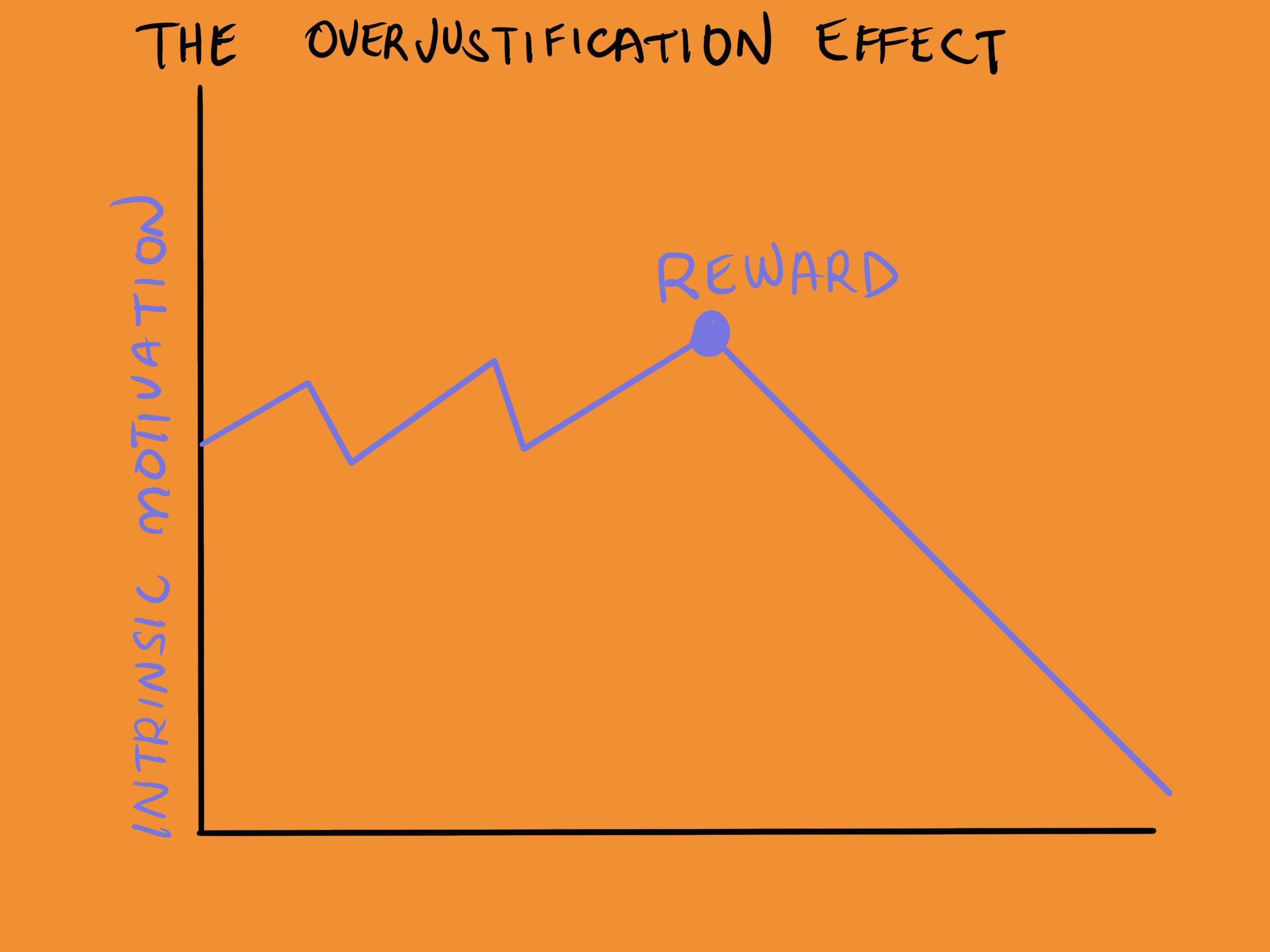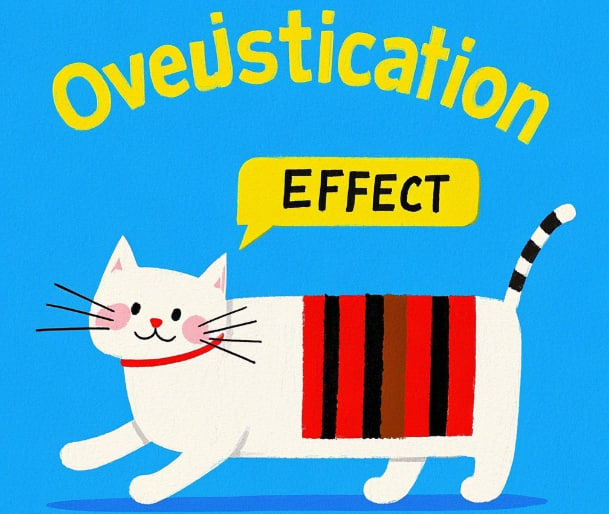When we do things, we often do them because others give us something in return, such as praise, bonuses, or promises. But sometimes you may find that when these external rewards disappear, we become lazy and stop doing them. This phenomenon is called the “overjustification effect” in psychology.
What is the “overjustification effect”?
Simply put, when you do something because of external rewards, you gradually start to feel that the task itself isn’t that important. On the other hand, if you genuinely enjoy doing something, you’ll keep doing it even if no one offers you any benefits.
Here’s an example:
A child used to love drawing and would draw every day on his own initiative. But then his parents started rewarding him with pocket money: “If you draw well today, I’ll give you 10 dollars tomorrow.” Over time, the child might start thinking, “I’m not drawing because I enjoy it; I’m drawing for the money.” Gradually, he no longer enjoys drawing as much as he used to.

Another example is exercising. If you start running just to lose weight, you may stop running once you lose weight. But if you really enjoy exercising, you will continue to do it.
This is the most common manifestation of the “over-reasoning effect.”
This phenomenon often occurs in life
1. In intimate relationships: taking the other person’s kindness for granted
Sometimes we ignore the care others show us because we think it’s their responsibility.
For example, if your partner cooks a meal for you, you might think, “It’s no big deal; they always cook anyway.” But if a friend cooks a meal for you, you’ll feel particularly touched and think they care about you.
In fact, both people did the same thing, but because you are used to the other person’s efforts, you no longer see it as a sign of love. This way of thinking can make relationships cold and make them feel more like work, lacking warmth.
2. In family education: Using rewards to make children lose interest
Many parents use material rewards to motivate their children to study, such as promising to buy them toys or give them pocket money if they get good grades.
This method is effective in the short term, and children will work hard to get the reward. But over time, children will feel that learning is just a means to get a reward, rather than something meaningful in itself. Once the rewards are reduced, their motivation to learn will also decline.
In fact, what really keeps children motivated to learn in the long run is finding joy in learning, rather than relying on external stimuli.
3. In advertising and marketing: little tricks to make you impulse buy
Have you ever had this experience? You see an advertisement that says, “Only one left!” or “Limited time offer!” and you feel like you’ll miss out if you don’t buy it, so you immediately place an order.
These advertisements are exploiting a sense of scarcity and urgency, making you feel like you have to buy now or you’ll miss out. But in reality, you haven’t really thought about whether you need this thing.
This is how businesses use external factors to influence your decisions instead of letting you judge for yourself whether something is worth buying.
How can you avoid this situation?
1. Think about what you really want
Don’t always be attracted by external things. Instead, ask yourself: Why am I doing this? Do I really like it? If no one gave me anything in return, would I still be willing to continue doing it?
For example, you want to learn to paint, not because others praise your work, but because you enjoy the process of painting. That way, you won’t give up easily.
2. Think more about your feelings
You can spend a few minutes every day asking yourself a few questions:
Through constant reflection, you will get to know yourself better and be clearer about what you really want to do.
3. Don’t rely too much on external rewards
Although rewards can sometimes help us get started, relying too much on them will cause you to lose your inner motivation.
For example, when it comes to children’s education, don’t just focus on their grades. It’s more important to let them experience the joy of learning. When it comes to exercise, don’t just do it to lose weight. Do it to make yourself healthier and more energetic.
True motivation should come from your inner love and recognition.
Summary:
The “over-reasoning effect” tells us that when the main reason we do something is external rewards, we tend to overlook the intrinsic value of the task itself. Over time, once the rewards disappear, we lose our motivation.
Therefore, we must learn to focus on our inner selves and find the true reasons that motivate us to persist. Only then can we go further and achieve greater happiness.

